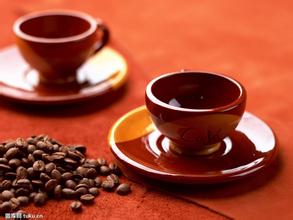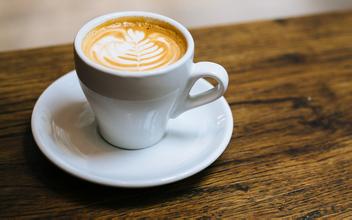Lime sour sun Yega Shifeiwaka Coffee Flavor description introduction to the way of grinding and brewing
Ethiopia's Yirgacheffe coffee is petite, but gentle and sweet. As the home of coffee, Ethiopia's millennia of growing and processing traditions have resulted in high-quality washed Arabica beans. Light toasted with unique lemon, floral and honey-like sweet aromas, soft fruit acids and citrus flavors, fresh and bright taste. No milk or sugar added, let the rich texture and unique soft floral brush your taste buds, leaving an endless aftertaste.
Planting:
Coffee trees are mostly planted in farmers 'backyards or mixed with other crops in the field. The yield per household is not much. It is a typical pastoral coffee. These mountain villages are misty, spring all the year round, cool but not hot in summer, rain but not damp in winter, and they give birth to unique regional flavors of citrus and flowers.
Flavors:
The so-called "yejia sherry" refers to the intense jasmine, lemon and peach, almond and tea aromas. There is only one sentence to taste experience: coffee entrance, flowers bloom! Just like flowers touch taste buds and nasal olfactory cells comfortable feeling. In addition to the floral fragrance, the delicate body is like silk massage in the mouth, and the touch is wonderful. The oldest sun treatment method is adopted. However, in 1972, Ethiopia introduced the washing technology of Central and South America in order to improve the quality, which made the jasmine fragrance and citrus fragrance of Yoga Coffee more clear and refined. It has become the best quality beans in the world. The exquisite washing technology has contributed greatly. After the 1970s, it was basically washed with water. However, In the past two years, Yerga Coffee has been out of its usual state and has frequently launched amazing sun beans! Sun-baked coffee has a strict collection of red fruit (coffee tree fruit) standards, before exposure to coffee fruit manually remove immature green fruit or defective fruit, sun process and then remove damaged or moldy fruit, two weeks after the pulp sugar and essence of all into the coffee beans, water content reduced to 12%, and then hardened pulp, pectin layer, pods together with the scraper clean, coffee beans removed but also through density and bean color testing. After the defective beans are eliminated, the workers finally pick out the defective beans with the naked eye, and then check and select them layer by layer, creating a clean and refined yejia sherry sun beans with a rich and charming fruit fragrance.
Yegashefi's coffee trees were cultivated by European monks (a bit like Belgian monks growing wheat to brew beer) and later by farmers or cooperatives. Yerga Shefi is actually constructed by surrounding coffee communities or cooperatives, including Idido, Harfusa, Hama, and Biloa near Misty Valley, all washed, but a small number of unique beans are deliberately sunburned to enhance the charming fruity flavor and body. These mountain villages are foggy, spring all year round, cool but not hot in summer, rain but not damp in winter, and they have a unique regional flavor of citrus and flowers. Coffee trees are mostly planted in farmers 'backyards or mixed with other crops in the field. The yield per household is not much. It is a typical pastoral coffee. Yega Shefi award-winning beans almost come from the coffee villages and communities mentioned above.
The so-called "yejia sherry flavor" refers to rich jasmine flowers, lemon or lime acid aroma, as well as peach, almond sweet or tea aroma. And, this season, the blueberry flavor of dried snow is especially prominent. After grinding, the blueberry fragrance fills the house.

Important Notice :
前街咖啡 FrontStreet Coffee has moved to new addredd:
FrontStreet Coffee Address: 315,Donghua East Road,GuangZhou
Tel:020 38364473
- Prev

El Himalayan Coffee Grind Characteristics Variety Flavor Description Taste Introduction
San Salvador, Bahia. An important natural deep-water port on Brazil's Atlantic coast, capital of Bahia. Located on the east coast of the Bay of Todos (Santos). With a population of 3,459,377 (as of August 1, 2010), it is the eighth largest city in Brazil. It is one of the oldest cities in Brazil, founded in 1549, and the first churches were built by Jesuit priests in 1549. until 1763.
- Next

Guatemala La Cadura Coffee Flavor Description Grindness Characteristics Variety Producing Area Taste Introduction
Mainly cultivated on Java Island, Indonesia, drought and insect tolerance; bitter taste, but bitter with fragrance, especially after cooling with a unique sweet taste, suitable for cold coffee, is full-bodied and extremely bitter. Leberica: This variety is very rare, mostly used to synthesize coffee and make coffee extract, rarely seen on the market, poor quality, poor flavor of individual products Guatemala
Related
- Detailed explanation of Jadeite planting Land in Panamanian Jadeite Manor introduction to the grading system of Jadeite competitive bidding, Red bid, Green bid and Rose Summer
- Story of Coffee planting in Brenka region of Costa Rica Stonehenge Manor anaerobic heavy honey treatment of flavor mouth
- What's on the barrel of Blue Mountain Coffee beans?
- Can American coffee also pull flowers? How to use hot American style to pull out a good-looking pattern?
- Can you make a cold extract with coffee beans? What is the right proportion for cold-extracted coffee formula?
- Indonesian PWN Gold Mandrine Coffee Origin Features Flavor How to Chong? Mandolin coffee is American.
- A brief introduction to the flavor characteristics of Brazilian yellow bourbon coffee beans
- What is the effect of different water quality on the flavor of cold-extracted coffee? What kind of water is best for brewing coffee?
- Why do you think of Rose Summer whenever you mention Panamanian coffee?
- Introduction to the characteristics of authentic blue mountain coffee bean producing areas? What is the CIB Coffee Authority in Jamaica?

